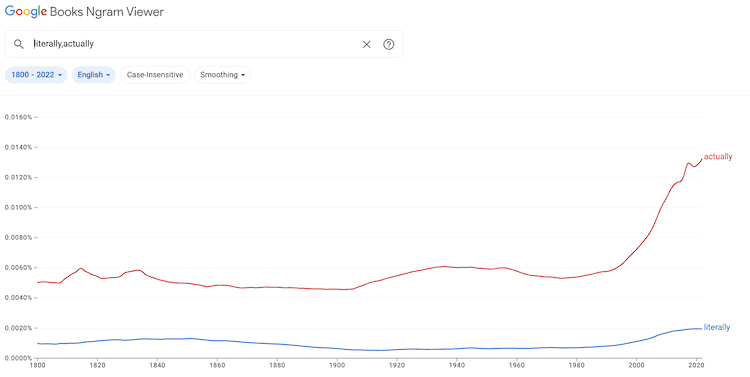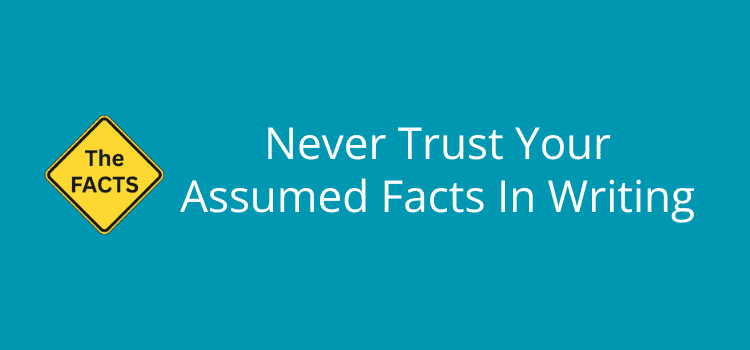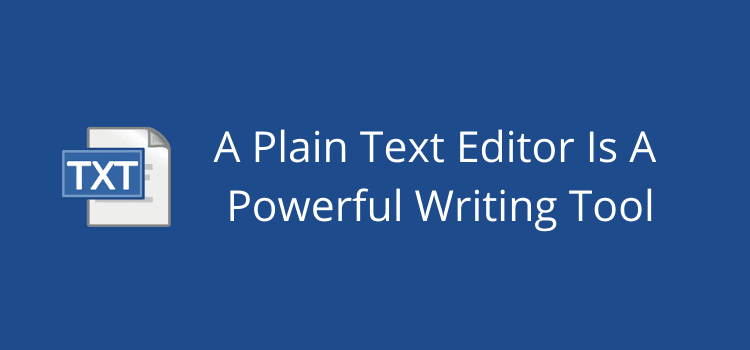
Poor or repetitive vocabulary choices can get on a reader’s nerves, with literally and actually being possibly the two worst offenders.
While both adverbs have a limited use for additional emphasis or clarifying facts, they have gradually become overused and unnecessary exaggerations.
You come across these two words frequently on social media, as well as in everyday conversation.
However, whether you are writing fiction, nonfiction, essays, or even social media posts, reducing your use will (actually) make your writing stronger.
What’s wrong with these two words?
They are functional adverbs, so they have their place.
The problems arise, however, from overuse or misuse, which can make writing seem overly dramatic or even cause redundancy.
Instead of using them to add occasional clarity, they often interfere with something a reader would already understand.
For example, “He was literally fired on the spot with no explanation” might be meant figuratively, but it adds nothing whatsoever to the meaning.
Similarly, “She actually enjoyed my new book” could imply surprise, but it often just adds a weak attempt at emphasis.
These words are frequently used in conversation when a casual tone and exaggeration are commonplace.
But in writing, especially persuasive writing, when precision matters, they can dilute the message.
Actually often sneaks into dialogue or reactions in fiction, but rarely changes the meaning of a sentence or an utterance.
Literally is a little bit trickier because it means “in a literal sense or “exactly.”
However, it is now often misused to replace really or very. “I’m literally so tired every day.”
How to avoid using these two adverbs
The easiest way to cut down on literally and actually is to catch yourself when you use them. Do you need them?
When you get to editing, use “find” for both words. Do they change the meaning of your sentences, or are they only unnecessary added extras?
If you can remove either adverb without altering a point or changing the meaning, it’s probably worth deleting.
You can also try editing a sentence with stronger verbs or adding more descriptive details.
Instead of writing, “He was literally shaking when he told me the news,” describe how his hands were trembling or how he caught his breath.
For a sentence like “She actually finished the race,” try “She crossed the finish line, out of breath but with a beaming smile.”
Good writing doesn’t need unnecessary decorations. It should be direct and clear.
In fiction writing, rely on the strength of your scene or characters, not filler words.
Dialogue is the one place where these adverbs might occur more often, but only use them if they are necessary to reflect a character’s voice or attitude.
But even then, use them sparingly, and only when they can be effective.
Like many adverbs, they are often lazy words because they are quick and easy to use.
Keep in mind that actually means a surprising result or something unexpected, not a general emphasis.
On the other hand, literally means in a literal manner or exactly.
That’s why “We literally died laughing” has a logic problem.
When to use literally and actually
Although using these two adverbs is often frowned upon, they do have a rightful place if you use them correctly.
You can use literally when something is true in a literal and physical sense.
For example, “She literally ran into her ex-husband at the supermarket” is fine if she physically collided with him by accident.
However, if it was simply a chance encounter, perhaps at a short distance, literally doesn’t apply.
A better sentence would be: “She bumped into her ex-husband at the supermarket.”
Another correct use would be “The room was so cold, I could literally see my breath.”
If you’re describing an actual visual of breath mist, then it’s appropriate.
Actually works when you are clarifying or correcting information.
For example:
“She thought he lived in Paris, but he actually lives in Berlin now.”
“People say the book is fiction, but it’s actually based on facts and real events.”
You could also use these words intentionally in dialogue if you want to add to a character’s personality or tone.
For example, “I literally can’t watch that movie ever again” may suit a dramatic or sarcastic speaker in a casual context.
Similarly, “Actually, I think you’re totally wrong,” can reflect directness or defiance.
Just remember that in narration, dialogue, or any form of writing, any overuse will weaken your impact.
If too many sentences rely on these words for emphasis, they will stop adding anything at all and have a good chance of annoying readers.
Adverbs are too quick and easy
Because adverbs are so versatile, it’s tempting to overuse them. You can modify a verb, an adjective, or even another adverb.
He said loudly. (Modifying a verb)
The movie was surprisingly good. (Modifying an adjective)
She moved incredibly quickly through the crowd. (Modifying an adverb)
However, in most forms of writing, it’s better to use stronger vocabulary if you can to reduce your use of adverbs.
Here are quick fixes for the sentences above.
He shouted.
The movie was excellent, to my surprise.
She raced through the crowd.
You can’t write without adverbs, but you can keep them to a minimum.
Summary
Adverbs get a bad wrap, and in many cases, rightfully so. Stephen King called them weeds.
In this instance, actually and literally aren’t always incorrect, but they are very often redundant, distracting, or used in ways that can dilute the strength of your writing.
They are two words that have become common in our everyday speech, online chats, and even fiction, to the point where they have lost their intended impact, or worse, sometimes confuse the meaning.

In the graph above, you can see that the adverb actually, in particular, has taken a sharp and recent upturn in use.
If you can remove them without affecting the meaning, do it. Use them only for clarity, emphasis, or voice.
Strong verbs, precise details, and well-written descriptive sentences will always beat weak adverbs and filler words.
Related Reading: Describe Silence In Writing Without Saying “It Was Quiet”
Share This Article


